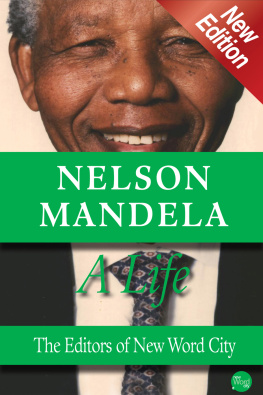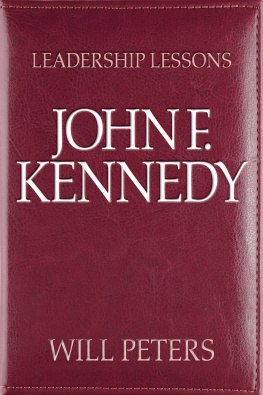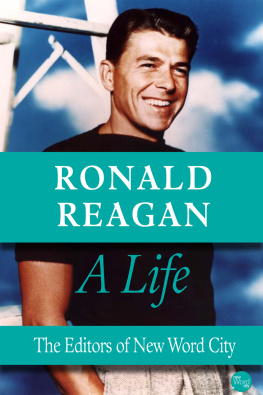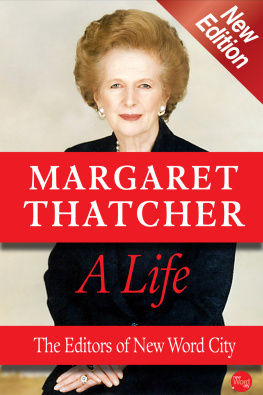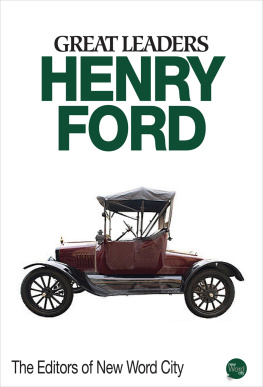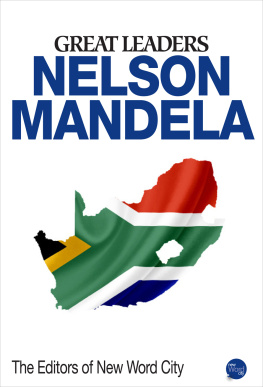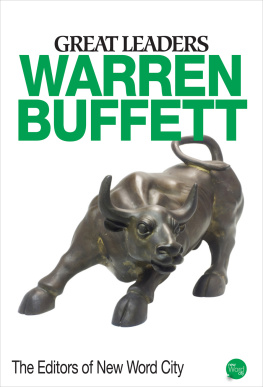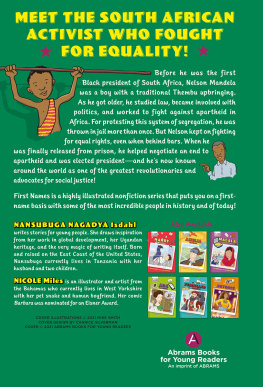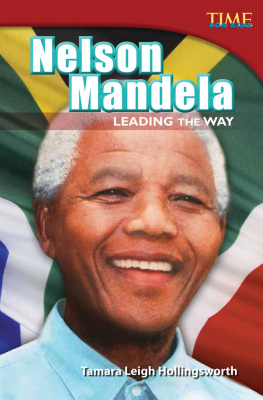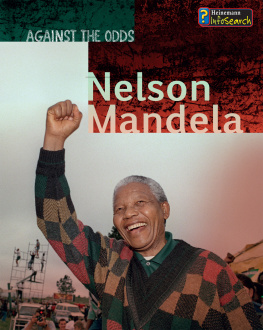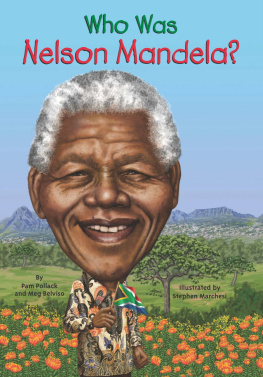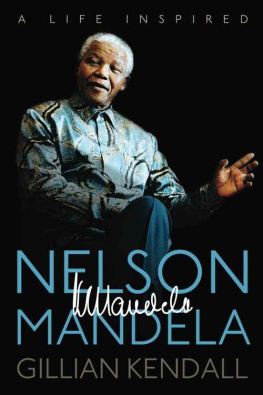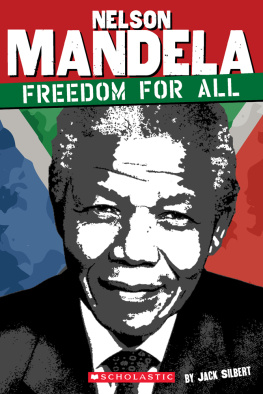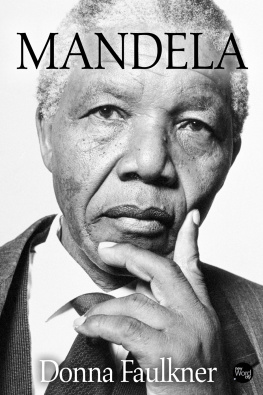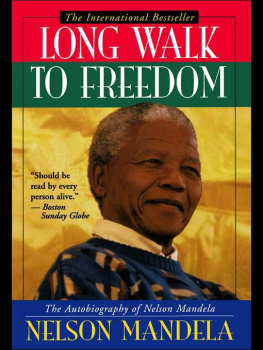NELSON MANDELA, A LIFE
When one of the airplanes two engines sputtered to a halt, the passengers onboard began to fear for their lives. But then they looked at Nelson Mandela - the man who against extraordinary odds had negotiated the end of apartheid in South Africa, the man who was now seeking the countrys presidency in the first election in which blacks would be allowed to vote. He sat calmly reading his newspaper. The other passengers quieted down.
Twenty minutes later, after the plane touched down on the tarmac, Mandela strode down the steps and across the runway to the car where his friend Richard Stengel, a writer for Time magazine, waited. The two climbed into the back seat. Man, Mandela said, I was terrified up there!
That was only one of the many lessons Nelson Mandelas life holds for all of us. His moral courage and fight against injustice helped give birth to the new South Africa. His dignity, grace, and compassion for his enemies seem almost superhuman. But as the scare on the plane suggests, his leadership was as effective as it was inspiring.
Born Troublemaker
Rolihlahla Mandela was born on July 18, 1918, a member of the Thembu tribe, the son of a former chief and great-grandson of a king. His given name literally means shaker of trees, but he would grow up to shake the world.
His tribe is part of the larger Xhosa nation, which resides in the part of South Africa now known as the Eastern Cape. In the early twentieth century, the Xhosa farmed and raised livestock. They valued education, order, civility, and courtesy, ideals instilled in Mandela from birth. His mother Nosekeni Fanny - one of four far-flung wives of the wealthy chief Gadla Henry Mphakanyiswa - had her own comfortable home in the village of Mvezo, where Mandela was born. But that life was cut short when her husband defied the authorities as an act of principle.
Later, Mandela would tell the story with pride. South Africa was then ruled by Great Britain, and English laws took precedence over tribal customs. When a conflict within the tribe landed him in a British court, Mandelas father challenged its authority, insisting that the dispute was a Thembu matter. He was stripped of his chiefdom and wealth.
The lack of money forced Mandelas mother to move to another village, where she could rely on family members for help. There, Mandela writes in his autobiography, he had an idyllic boyhood gathering wild honey and fruits, swimming in clear streams, catching fish with twine and wire, and fashioning animals out of clay. He recalls long, lazy afternoons tending cattle, herding them gently by walking behind them with a small stick. Learning was through example and experience, not formal schooling. He absorbed tribal traditions, myths, rituals, and taboos.
Mandelas mother converted to Christianity, and he was baptized when he was seven. Soon after, the boy was sent to a church school not far from his village. He had never worn Western clothes. For his first day of school, his father cut off a pair of his own pants at the knees and cinched the waist with rope.
That was also the day the teacher gave Mandela his English name Nelson. It was a precursor to Mandelas later fascination with British ideas, culture, and institutions. In his autobiography, he confessed to the paradox of being something of an Anglophile.... [T]he very model of the gentleman for me was an Englishman.... While I abhorred the notion of British imperialism, I never rejected the trappings of British style and manners.
Mandela was nine when his father died of lung disease. His mother sent him to stay with an old friend of his father. Chief Jongintaba, who was the regent of the Thembu people and presided over an impressive compound known as the Great Place at Mqekezweni. For a boy from a tiny village, the Great Place offered an unimagined level of comfort and instruction.
Young Mandela did well in school and soaked in lessons outside of the classroom by listening and watching. He was particularly impressed by how Jongintaba led the Thembu people - a manner that Mandela later emulated as South Africas president.
Council meetings were held as needed to evaluate new edicts issued by the British magistrate, property disputes, and any other matters related to the tribe. All male members, whatever their rank, were allowed to attend and speak. Mandela listened as some made succinct arguments and others rambled, and he noted how some sought to appeal to reason and others to feelings. Many strongly criticized the regent himself. Through it all, Jongintaba listened intently but betraying no emotion. At the end of meetings, which often lasted all day, the regent stood and summarized what had been said and then subtly steered the tribe to consensus. It is wise, Mandela said years later, to persuade people to do things and make them think it was their own idea.
When he was sixteen, Mandela left the Great Place to attend Clarkebury Boarding Institute, an elite, all-black prep school. The white headmaster, Reverend C. Harris, maintained a stubborn facade, but he was a kind man who cared deeply about educating African children. Mandela admired him for his selfless devotion to his students.
Mandela went on to the University of Fort Hare, the preeminent, black-African institution of higher learning. He took up competitive sports, including boxing and long-distance running. Although he was not a naturally gifted athlete, he excelled because of his disciplined training. That began a regimen of daily exercise that would help keep him fit throughout his life.
Fort Hare was filled with bright scholars, many of them openly advocating increased rights for black Africans. This was where Nelson Mandela first learned about the African National Congress (ANC). Founded in 1912, the organization sought to advance the black cause in South Africa.
When the first Dutch settlers arrived at the Cape of Good Hope in 1652, they found a country sparsely populated by scattered tribes. The new settlers, who called themselves Afrikaners, were unrepentantly racist and brutally subjugated the indigenous population. The British took over early in the nineteenth century, full of pomp and empire and certain of their superiority to both blacks and Afrikaners (also called Boers). Tension between the white rivals continued to grow, culminating in the Boer War, which lasted from 1899 to 1902. The British won the war and began a period of dominance that would last until the Afrikaners National Party (ANP) won the 1948 election. It was the new Boer Prime Minister Hendrik Verwoerd who would pass the laws of apartheid that made the lives of blacks more unbearable than ever.
In standing up for black rights, the ANC had never been fanatical. Now, as the crisis of apartheid loomed, the organization was more timid than ever, led by a wealthy doctor unwilling to risk his reputation and career by adopting an aggressive strategy.
But full apartheid was yet to come. Back at Fort Hare in 1941, students were keenly following World War II. South Africa had joined the Allies in declaring war on Germany, but the National Party was openly sympathetic to the Nazis. As Mandela became engaged in the larger world, his knowledge of black oppression increased and his fledgling ambitions began take shape. Most important, his moral compass was finding its true north. It was soon tested when he disputed the results of a student election. His stance was as principled as his fathers had been when he challenged British authority, but the outcome was no better: He was suspended.
Returning to the Great Place, Mandela rebelled when Jongintaba told him that a wife had been selected for him. He chose instead to create a new life in Johannesburg, the prosperous center of the gold mining industry, where jobs were plentiful in the wartime boom.

